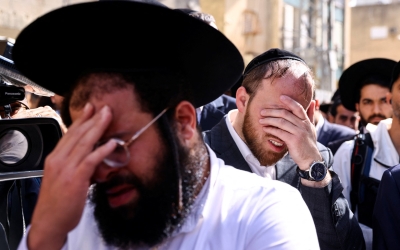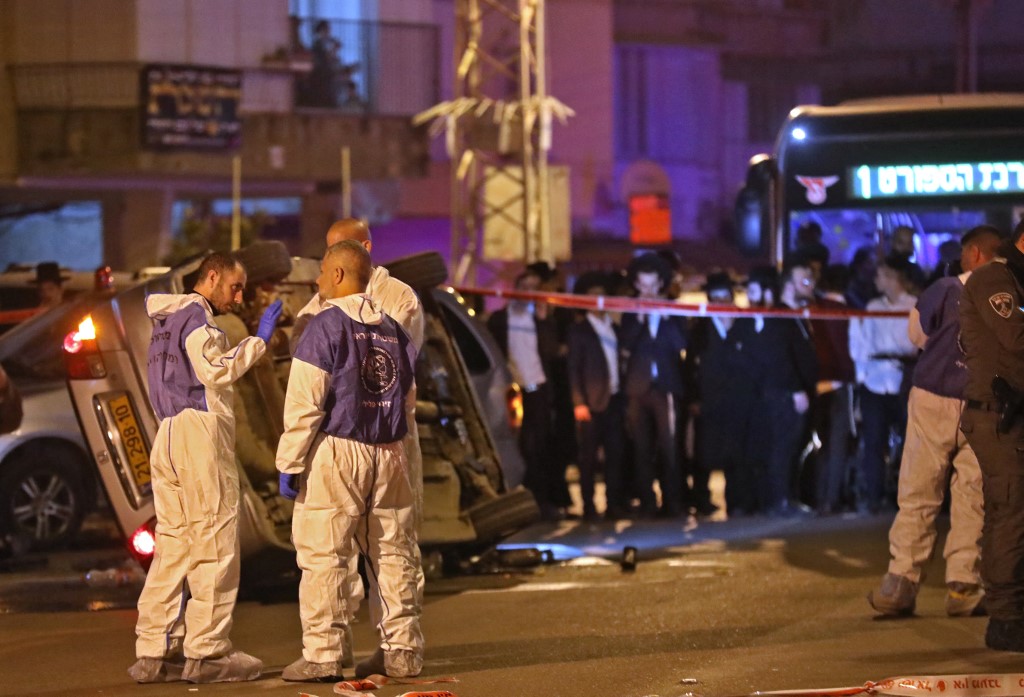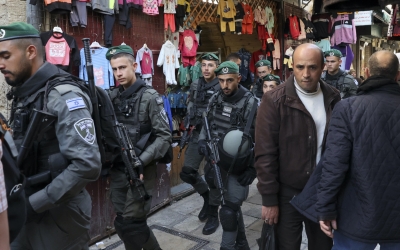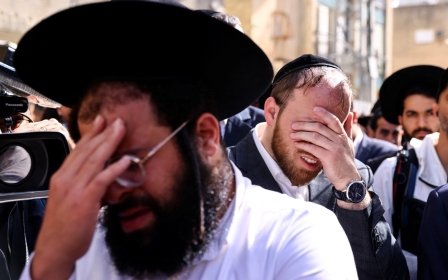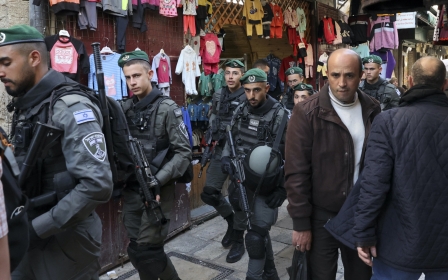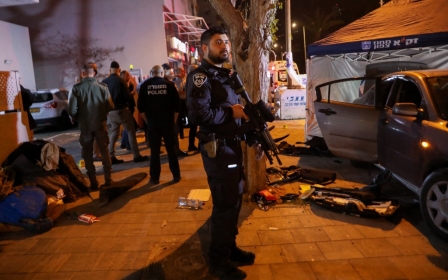Israel's week of deadly attacks: What you need to know
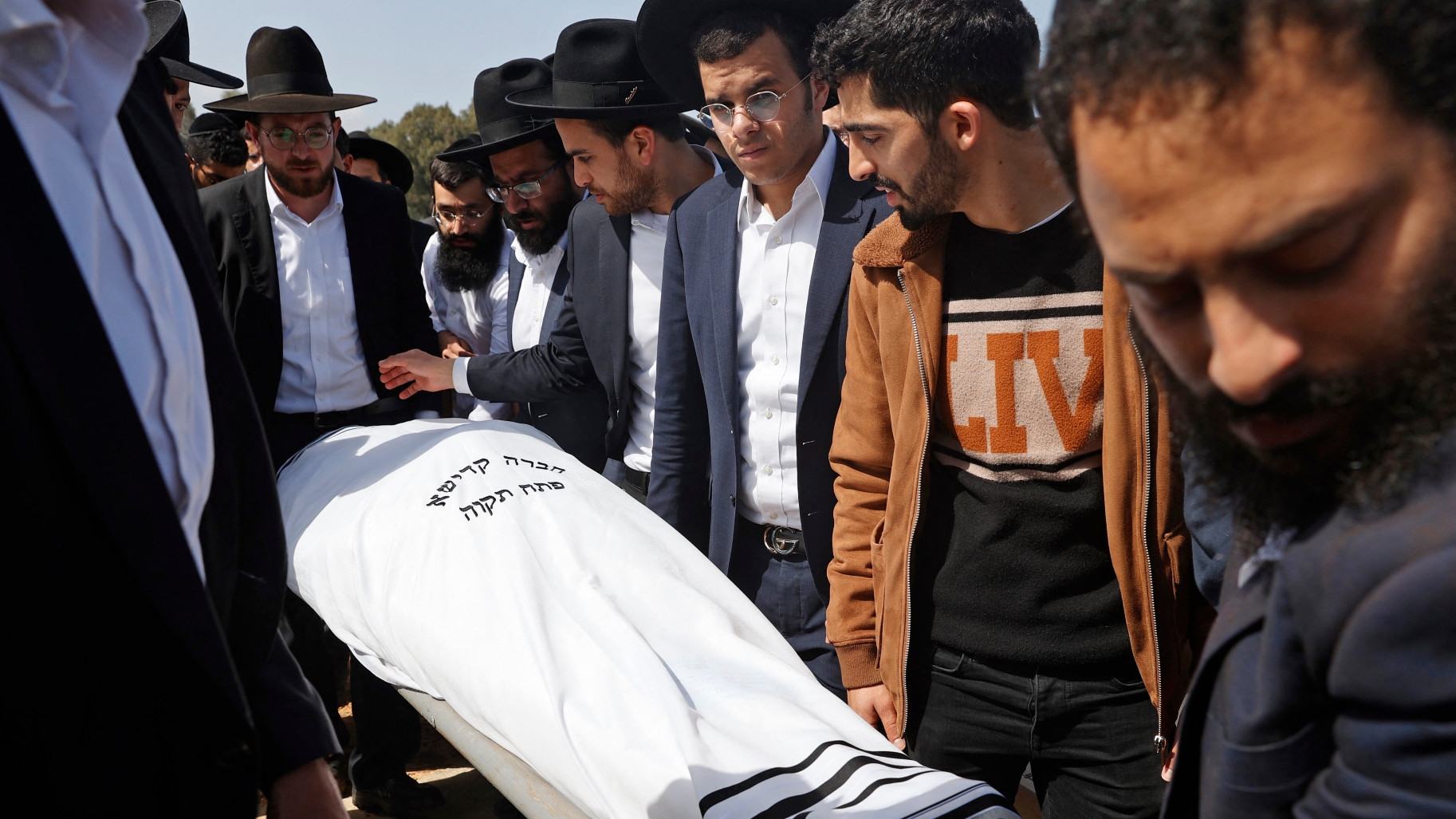
In the past week, three attacks have claimed the lives of 11 Israeli civilians.
The latest came on Tuesday evening, when a Palestinian gunman killed five people in a shooting in Bnei Brak, in the Israeli city of Tel Aviv.
New MEE newsletter: Jerusalem Dispatch
Sign up to get the latest insights and analysis on Israel-Palestine, alongside Turkey Unpacked and other MEE newsletters
Two similar incidents days earlier left six people dead and several wounded.
The attacks have increased fears among Israelis of the possibility of further violence and prompted police to go on high alert.
Palestinians, meanwhile, have been targeted by a heavy-handed arrest campaign and threats of reprisals from far-right groups in the wake of the attacks.
Here, Middle East Eye answers five key questions about the recent events.
How did the attacks unfold?
On 22 March, a Palestinian citizen of Israel killed four people in a suspected stabbing and car-ramming attack in Beersheeba, in southern Israel. The perpetrator, from the town of Hura, was shot at the scene by a bus driver.
Then, five days later, two Palestinian gunmen opened fire in the central Israeli city of Hadera, killing two Israeli police officers and wounding several others before being fatally shot.
On Tuesday, in the third such attack in a week, a gunman killed five people in a shooting in the suburbs of Tel Aviv.
The assailant, identified as 27-year-old Diya Hamarshah, was later shot and killed by police.
Local media said Hamarshah was a former Palestinian prisoner from the occupied West Bank city of Yabad near Jenin.
The shooting reportedly took place in two different areas in Bnei Brak, an ultra-Orthodox Jewish area.
The assailant fired at a young man in a convenience store, using an assault rifle, before shooting at another person riding on a bike, then shot at a passing car, Haaretz reported.
How have Israelis reacted?
Some Israelis have said that the March killings remind them of the years of the Second Intifada (2000-2005), which saw suicide bombings and shootings take place across the country.
One Bnei Brek resident, who lives near the location of Tuesday's attack and preferred not to give her name, told Middle East Eye that the shooting left her "scared and sad".
"I feel unsafe. I can't believe it happened this close to us. I am always shocked to see incidents like this - but when it's so close it hits different," she said.
"I don't think there's a future in Israel. The clock is turning back. I have no hope."
Other residents of Tel Aviv told local media they would try not to leave their homes.
Shortly after the attack, scores of Israelis gathered at the scene where they could be heard chanting anti-Palestinian slogans, including "death to Arabs". Some were calling for Israeli Prime Minister Naftali Bennett to resign.
Settlers have attacked Palestinians in the occupied West Bank, damaging properties and setting fire to vehicles.
Inside Israel, a far-right armed milita said last week it had started to mobilise its members to defend themselves against any attacks.
In the southern region of Negev (Naqab), an armed militia called the "Barel Rangers unit" announced it had set up squads across the area.
"Since the terrorist attack, we have begun setting up armed squads [of volunteers] on stand-by. They are deployed so far in Omer, Meitar, Lehavim, Dimona, Carmit, and Beersheba," the group said in posts published on its Facebook page.
"An anti-terror team will also be present in the sector to deal with any scenario," the group said.
Bennett said that Israel was "facing a wave of murderous Arab terrorism" in the wake of the attacks and held a security meeting with Defence Minister Benny Gantz and other security officials to assess the security situation on Tuesday night.
How have police reacted?
Israeli police announced on Tuesday that they were raising the alert level to the highest it has been since May last year.
On Sunday, Israeli forces launched a raid on the village of Umm al-Fahm, home to the Hadera attackers, according to local sources.
Typically, Israeli forces close off areas and clamp down on Palestinian towns in the aftermath of attacks, a tactic long been condemned by rights groups as a form of collective punishment.
Israeli forces have so far arrested 17 Palestinian citizens in overnight raids, but this number is likely to increase.
In Umm al-Fahm, roadblocks have also been set up on main roads. Israeli police have stated that they had called six reserve police units, with the possibility of more being called into active duty.
As well as the heavy police presence, the Israeli army also said it was sending reinforcements along the 1967 borders separating Israel from the occupied West Bank and the Gaza Strip.
How have Palestinians reacted?
There is a palpable and growing anxiety amongst Palestinians, who say they are concerned about reprisals from Israeli forces.
Citizens of Umm al-Fahm condemned Sunday's attacks but remain on edge over the response from authorities, who have deployed police on the ground.
On Wednesday, Palestinians began annual Land Day protests across Israel and the occupied Palestinian territories.
Mohammed Barakeh, chair of the Higher Arab Monitoring Committee, announced that the demonstrations would go ahead despite the "difficult atmosphere and the bloodshed".
Speaking to Haaretz, a member of the committee said they would not be letting the attackers "dictate the agenda".
“We will continue with the events even if [participation] is limited," they said, speaking anonymously.
"We condemn the attacks; the assailants not only hurt innocent people, they also pour fuel on the incitement against Arab citizens ahead of Ramadan.”
Mahmoud Abbas, the president of the Palestinian Authority, has condemned the attacks, saying that "the killing of Palestinian and Israeli civilians will only lead to a deterioration of the situation at a time when we are trying to reach a stabilisation on the eve of the month of Ramadan."
Ayman Odeh, head of the Palestinian political alliance in Israel the Joint List, also condemned Tuesday's attack.
"Five civilians were killed today - each a world in their own right. They join the 51 Palestinians killed since the beginning of the year - each one a world in its own right," he said.
"I strongly oppose any harm to civilians, Palestinians or Israelis alike, along with all harm to innocent people," he added.
"It is time to end the source of hatred that is the damned occupation, and to establish peace that will bring security and normal life to both peoples."
What’s next?
The atmosphere is tense. Palestinians are on stand-by, Israeli far-right groups are organising, and the May uprising anniversary is fast approaching.
Israeli authorities have previously said they will allow police-protected settlers to enter al-Aqsa Mosque en masse during the Passover holiday, which will fall during Ramadan.
Israeli incursions at the mosque are seen by Palestinians as highly provocative, especially during Ramadan when al-Aqsa is full of worshippers. Many have warned that such raids will increase tensions.
Violence spiked last Ramadan when Israel tried to expel Palestinian families from the Sheikh Jarrah area to make way for Israeli settlers and police attacked worshippers inside the courtyards of al-Aqsa.
This prompted widespread protests across the occupied West Bank and the Palestinian community inside Israel, and rockets were fire from armed groups in Gaza, triggering Israel's large-scale military operation on the besieged strip.
Israel’s 11-day offensive on Gaza last year claimed the lives of more than 260 Palestinians, including 66 children. Twenty-nine Palestinians were killed by Israeli attacks in the West Bank and 13 people were killed in Israel from rocket attacks.
Aouni al-Mashni, a senior Palestinian political figure from Bethlehem, told MEE that recent violence is the "sole responsibility of Israel" for its aggression against Palestinians.
"It's too early to suggest that we are entering a new phase - but we are certainly in a phase that is characterised by violence and deterioration," al-Mashni said.
Middle East Eye delivers independent and unrivalled coverage and analysis of the Middle East, North Africa and beyond. To learn more about republishing this content and the associated fees, please fill out this form. More about MEE can be found here.


